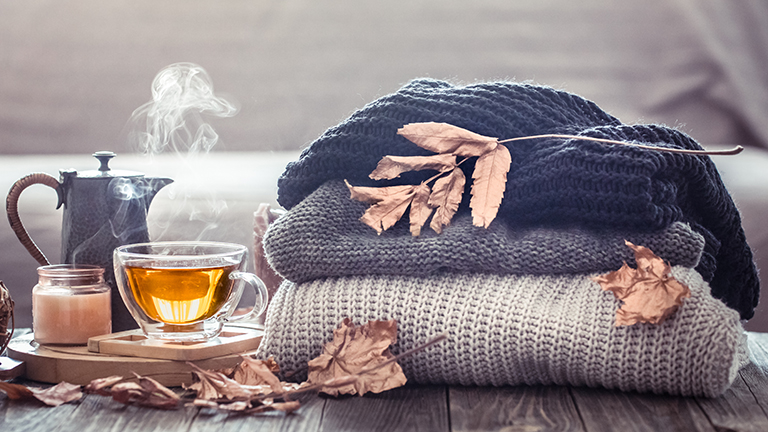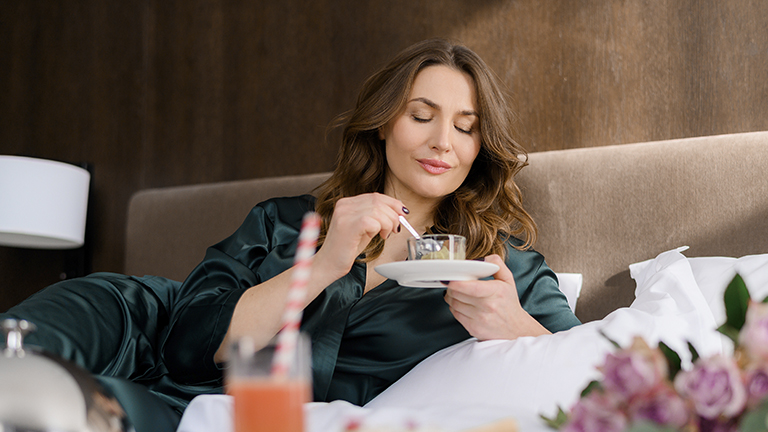Selecting the right tea is critical to obtaining a restful night of sleep (Best Teas for Sleep and Relaxation). Herbal teas, like chamomile, valerian, or lavender, have naturally occurring components which are helpful to calm your nervous system, alleviate stress, and ease your mind and body to promote relaxation. Choosing the right type of tea is key to having the healthiest night of sleep, without interrupted digestion or unpleasant side effects.
Acquaintance: Why Choosing the Right Tea Matters for Sleep
In our current time, sleep problems abound from stressors of everyday life. Therefore, many people decide to find natural alternatives to manage their stress or to induce calm in the body. One of the most pleasurable and effective remedies is tea. The best teas to assist with sleep and relaxation are herbal, caffeine-free teas with all of the sleep-enhancing ingredients that promote calming and prepare the body for a sound night of sleep. This article will address the best types of teas, how to brew teas, and the most common rituals some may enjoy while prepping for a sleep every night.
How Herbal Teas Promote Relaxation and Better Sleep
Herbal teas contain natural substances such as apigenin, linalool, and GABA that support anxiety, a more regulated nervous system, as well as the quality of sleep. Chamomile, lavender, valerian root, and lemon balm were all researched for their calming properties. Consuming teas that promote sleep simply add an extra and enjoyable way to relax and support overall health and well-being.
Top 10 Best Teas for Sleep and Relaxation
1. Chamomile tea
Chamomile tea is one of the most common herbal teas to drink if you not sleeping well. The mild sedative qualities come from apigenin, an antioxidant that binds to receptors in the brain which reduce anxiety and improve insomnia.
2. Lavender tea
Lavender tea is usually consumed in herbal tea (aromatic flower) form. The calming properties come from linalool, which has shown to reduce anxiety and improve sleep quality. Enjoy a cup of lavender tea in addition to your bedtime routine.
3. Valerian root tea
Valerian root tea is an all-natural herbal remedy for sleep, having sedative properties which can help lessen the time to sleep and increase sleep depth.
4. Peppermint tea
While peppermint tea is often incorporated into a routine for its digestive effects, peppermint is also relaxing. It can deter muscle tension and relieve anxiety and stress for relaxation at night.
5. Lemon balm tea
Lemon balm tea has been shown to decrease restlessness and anxiety, and can be consumed alone or in conjunction with chamomile or lavender tea for increased calming effects.
6. Rooibos Tea
Rooibos tea is caffeine-free tea that has antioxidants that can reduce stress hormones and help you sleep well, including aspalathin.
7. Passionflower Tea
Passionflower tea is beneficial for anxiety and sleep since it raises GABA levels in the brain and therefore calms the mind.
8. Magnolia Bark Tea
Magnolia bark tea is often used traditionally for insomnia and anxiety. Its compound honokiol has sedative and anti-anxiety qualities.
9. Hops Tea
Hops tea is a common brewing ingredient in beer. It can help promote sleep onset as well as improve subsequent sleep quality when consumed as an herbal tea.
10. Decaf Green Tea
Decaffeinated green tea has the amino acid theanine, which will promote feelings of relaxation without being sedative. Decaffeinated green tea is suitable for someone who enjoys the taste of tea as well as looking to relieve stress before bed.
The Science Behind Sleep-Inducing Teas
Research has indicated that various herbal compounds interact with chemical signals and receptors in the brain to encourage sleep. Apigenin, a component in chamomile, binds to GABA receptors in the brain, while valerian root and passionflower help to make GABA more available. Lavender and peppermint facilitate the reduction of cortisol—the stress hormone—creating the ideal state for deep sleep. When you combine their effects with the intention of drinking tea mindfully for a relaxing ritual, all of these teas can be excellent natural sleep aids.
How to Brew the Perfect Sleep Tea
Properly brewing sleep teas can affect the taste and potency of teas, ensure to follow these helpful step-by-step tips:
- Use fresh tea (loose-leaf or herbal blend) that is of high quality.
- Steep the tea in the correct temperature of water (boiling point). Most herbal teas will sit around (90-100C) or (202-212F).
- Steep the tea for (5-10min) depending on the herb.
- You may want to consider natural sweeteners to appeal to your tastes (such as) honey, a squeeze of lemon slice, or others.
- Make sure to drink the tea 30-60 minutes before bed for maximum relaxation effects.
Tea Rituals for a Relaxing Bedtime Routine
Adding tea to your evening routine might be a simple way to enhance sleep quality:
– Decrease light and screens while tea drinking.
– Breathe deeply or meditate mildly.
– Link a sleep schedule plus tea ritual.
– Finally, a calming environment will assist. Burn chamomile, lavender, or some other scent with candles.
Potential Side Effects and Safety Tips
Even though herbal teas are thought to be generally safe, it is a good idea to use precautionary measures, such as:
- Check and make sure you do not have an allergy or sensitivity to the herb.
- Talk to your doctor if you are pregnant, breastfeeding, or taking medication.
- Monitor your consumption, as excess consumption can lead to digestion problems.
- Choose organic teas to avoid exposure to pesticides.
Expert Opinion: Insights from Nutritionists and Sleep Specialists
Dr. Emily Harper, a sleep credentialed expert, said, “Herbal teas like chamomile or valerian added in the evening can help greatly with sleep latency and quality. It is a mild, organic remedy that fits well with good sleep hygiene.”
Nutritionist James Collins said, “The most important part of effective wind-down is consistency. Having a tea every night that is calming will not only reduce stress, but will have very clear signals for your mind and body to begin the sleep process.”
Frequently Asked Questions (FAQ)
Question 1: Can herbal teas assist people who have chronic insomnia?
Herbal teas may be useful for people who may have had conditions of insomnia for a short period of time, though if the person is suffering from chronic sleep disorder, then they should see a healthcare professional. Most often, teas can assist with sleep in addition to making lifestyle changes.
Question 2: How much sleep tea should I consume?
In general, this is research based on how to consume the tea on average, but some may have different tolerance. Most tea to promote sleep can be taken about a cup or two, consuming 30-60 minutes prior to designated bedtime. Drinking too much or tea with sleep properties could upset your stomach.
Question 3: Do decaffeinated teas provide value to winding down?
Yes! Decaf green and decaf rooibos are both good tea alternatives as the stimulant properties of caffeine have been removed.
Question 4: Can I combine herbs together in one tea?
Yes, herbs such as chamomile, and lavender or lemon balm, etc. promote sleeping behavior together. Just be conscious of any items that have a sensitivity or allergy.
Question 5: When do I drink sleep tea – How far in advance of going to sleep should I consume sleep tea?
Herbal teas can be approximately 30-60 minutes ahead of the going to sleep, the more as a calming effect on the body from the agitating properties from tea.
Conclusion: Choosing the Best Tea for Your Nighttime Routine
To discover the right teas for sleep and relaxation, you’ll need to try out a variety of teas based on your tastes. Also, it helps to know that different herbs may provide different benefits. Some common herbal teas to try for sleep or relaxation are chamomile, lavender, valerian root, peppermint, and lemon balm. Exploring intentional brewing methods, rituals before bed, and expert practice will help you have a better night’s sleep, seriously naturally more peacefully with little or no stress. Herbal teas are not only teas — they are strong new friends in a journey toward restorative sleep and wellness.


